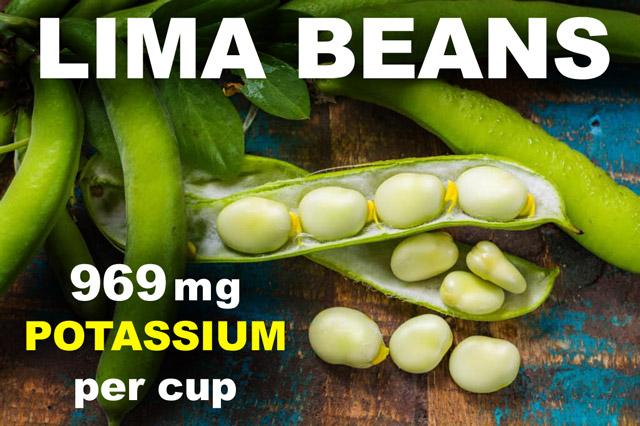An essential mineral
Potassium is one of the seven essential macrominerals. The human body uses potassium constantly to support key processes.
According to Medical News Today, high potassium intake reduces the risk of overall mortality by 20 percent.
It also decreases the risk of stroke, lowers blood pressure, protects against loss of muscle mass, preserves bone mineral density, and reduces the formation of kidney stones.
The primary functions of potassium in the body include regulating fluid balance and controlling the electrical activity of the heart and other muscles.
Intake is inadequate for most
The Adequate Intake recommendation for potassium is 4,700 milligrams (mg) per day for adults; however, the National Health and Nutrition Examination Survey reported that less than two percent of people in the U.S. meet the daily 4,700-mg potassium requirement.
Potassium is found in a variety of whole foods, especially fruits and vegetables such as yams, lima beans, spinach, potatoes and bananas.
Potassium is an electrolyte that counteracts the effects of sodium, helping to maintain consistent blood pressure.
Potassium is also important for maintaining the balance of acids and bases in the body. Bases are alkalis that have not yet dissolved in water.
Low potassium intake has repeatedly been linked with high blood pressure and cardiovascular disease. Maintaining a low sodium intake is essential to lowering blood pressure, but ensuring a good intake of potassium may be just as important.
Here is a list of 12 foods that are excellent sources of potassium:
- Beet greens, cooked: 26% of the RDI in a 100-gram serving.
- Yams, baked: 19% of the RDI in a 100-gram serving.
- Spinach: 839 mg in a one-cup serving represents 18% of the RDI.
- White beans, cooked: 18% of the RDI in a 100-gram serving.
- White potatoes, baked: 16% of the RDI in a 100-gram serving.
- Sweet potatoes, baked: 14% of the RDI in a 100-gram serving.
- Avocado: 14% of the RDI in a 100-gram serving.
- Pinto beans, cooked: 12% of the RDI in a 100-gram serving.
- Bananas: 10% of the RDI in a 100-gram serving.
- Chocolate: a 3-ounce serving contains 300 mg, or about 7% RDI.
– – –
Sources: NutritionData.com, MedicalNewsToday.com.


